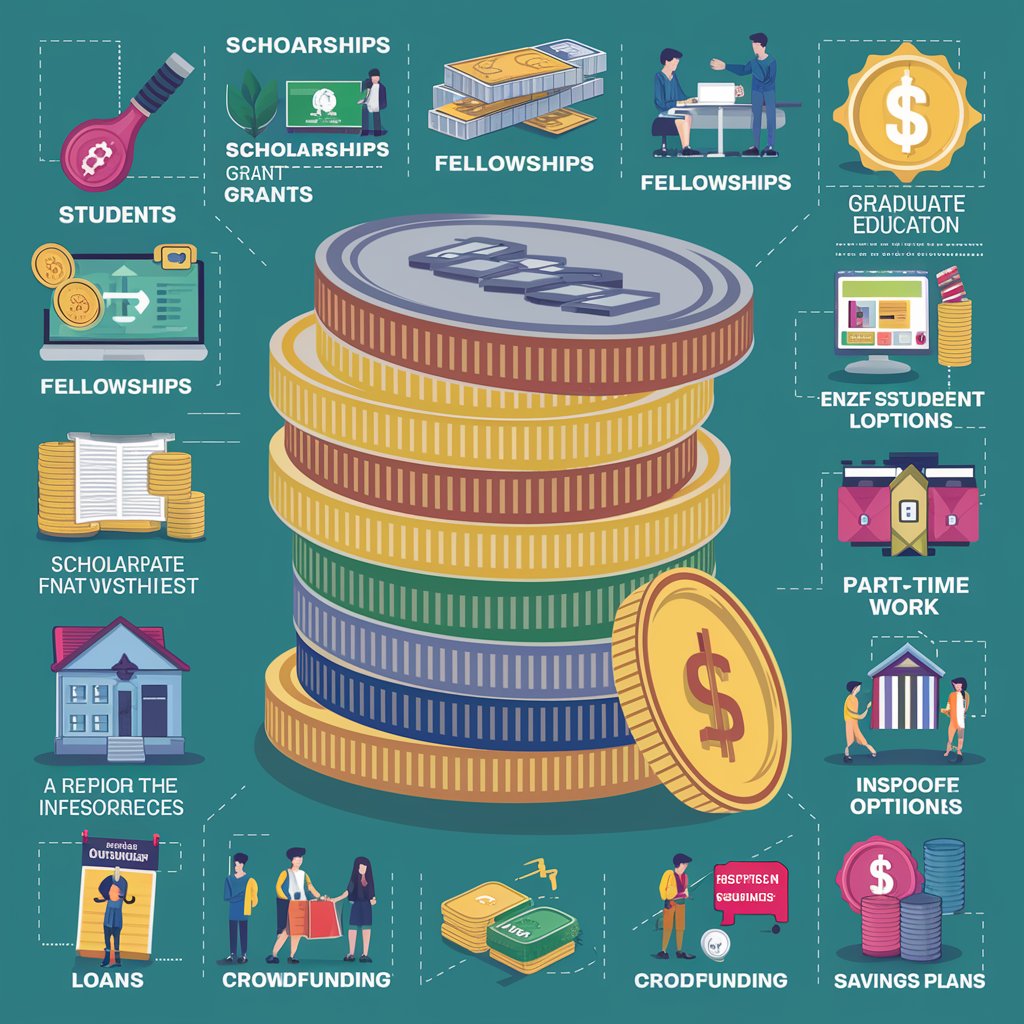
Hey there, future grad student! So, you’ve decided to take the plunge into graduate school. That’s fantastic! But wait—how do you plan to pay for it? Funding your graduate education can feel like trying to solve a puzzle with a thousand pieces, but don’t worry. I’m here to help you navigate through the myriad of options available to make this dream financially feasible. Let’s dive into the details and explore how you can fund your graduate education without breaking the bank.
1. Scholarships and Fellowships
1.1 Merit-Based Scholarships
Merit-based scholarships are awarded based on your academic achievements, talents, or other exceptional abilities. Many universities and external organizations offer these scholarships to attract top-tier students.
1.2 Need-Based Scholarships
Need-based scholarships are awarded based on your financial situation. These scholarships consider your income, assets, and family financial background to determine eligibility.
1.3 Fellowships
Fellowships are often offered by universities, government agencies, and private organizations. They usually come with a stipend and sometimes cover tuition costs. Fellowships can be based on merit, research proposals, or specific fields of study.
2. Assistantships
Assistantships are a popular way to fund graduate education, providing a stipend and often tuition remission in exchange for work.
2.1 Teaching Assistantships (TA)
Teaching Assistantships involve assisting professors with undergraduate courses. Duties may include grading, leading discussion sections, or even teaching classes.
2.2 Research Assistantships (RA)
Research Assistantships involve working on research projects, often related to your field of study. This can be a great way to gain hands-on experience while funding your education.
2.3 Graduate Assistantships (GA)
Graduate Assistantships can include a variety of roles, such as administrative support, program coordination, or other duties within the university.
3. Grants
Grants are essentially free money that you don’t have to pay back. They are often need-based and can come from various sources.
3.1 Federal Grants
In the United States, federal grants like the Pell Grant are primarily for undergraduate students, but there are specific grants available for graduate students as well.
3.2 State Grants
Many states offer grants to residents attending graduate school within the state. Check with your state’s higher education department for more information.
3.3 Institutional Grants
Some universities offer their own grants based on need or merit. Be sure to check with the financial aid office of the schools you’re applying to.
4. Loans
Loans can help bridge the gap between your available funds and the cost of graduate education. However, they need to be repaid with interest.
4.1 Federal Student Loans
Federal student loans often come with lower interest rates and more flexible repayment options compared to private loans. The most common federal loans for graduate students are Direct Unsubsidized Loans and Grad PLUS Loans.
4.2 Private Loans
Private loans are offered by banks and other financial institutions. They may have higher interest rates and less flexible repayment options, so it’s crucial to compare and understand the terms before borrowing.
4.3 Income-Share Agreements (ISA)
Some schools and private organizations offer ISAs, where you agree to pay a percentage of your future income for a set period instead of taking out a traditional loan.
5. Work-Study Programs
Work-study programs provide part-time jobs for graduate students with financial need, allowing them to earn money to help pay for education expenses.

5.1 On-Campus Jobs
On-campus work-study jobs might include roles in the library, administrative offices, or other departments.
5.2 Off-Campus Jobs
Some work-study programs allow for off-campus employment with private non-profits or public agencies related to your field of study.
6. Employer Assistance
If you’re currently employed, check if your employer offers tuition reimbursement or assistance programs. Many companies support their employees’ further education as part of professional development.
6.1 Tuition Reimbursement
Some employers offer tuition reimbursement programs, where they cover part or all of your tuition costs. There might be conditions, such as working for the company for a certain period after graduation.
6.2 Professional Development Funds
Employers might offer professional development funds that can be used for courses, certifications, or other educational expenses.
7. Crowdfunding and Personal Savings
In today’s digital age, crowdfunding has become a viable option for many students.
7.1 Crowdfunding Platforms
Websites like GoFundMe or Kickstarter can help you raise money for your education. Share your story and goals to attract potential donors.
7.2 Personal Savings
If you have personal savings, consider using them to finance your education. It might be tough to part with your savings, but think of it as an investment in your future.
8. Military Benefits
If you or your family members have served in the military, there are specific benefits available to help fund your education.
8.1 GI Bill
The GI Bill provides education benefits to veterans and their dependents, covering tuition, housing, and other expenses.
8.2 Yellow Ribbon Program
The Yellow Ribbon Program is a partnership between the Department of Veterans Affairs and schools to cover tuition costs not covered by the GI Bill.
Conclusion
Funding your graduate education requires careful planning and exploring all available options. From scholarships and assistantships to loans and employer assistance, there are many ways to make graduate school financially feasible. By researching and utilizing these resources, you can focus on your studies without the constant stress of financial worries. Remember, investing in your education is investing in your future. Good luck on your journey to academic and professional success!
Need more advice on funding your grad school journey? Feel free to reach out. Best of luck, and may your educational dreams come true!


